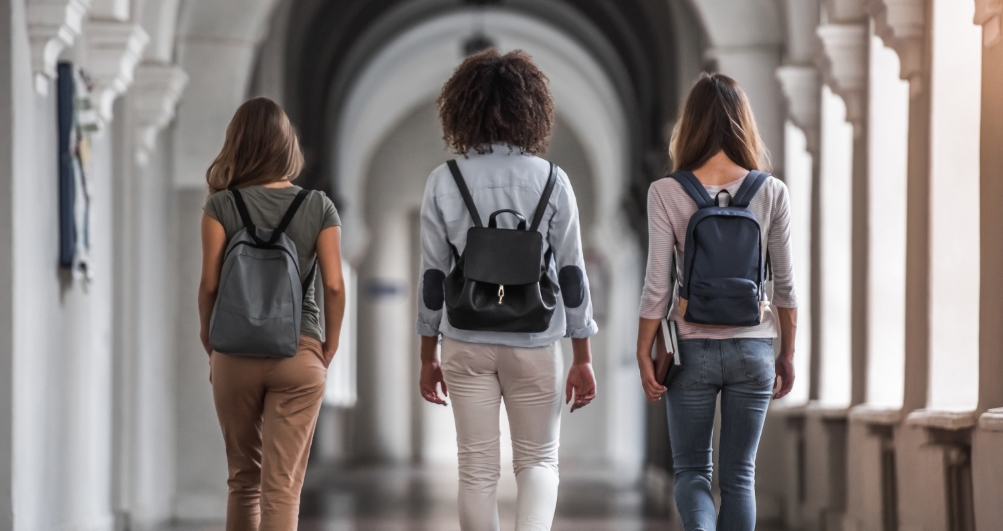Are you Black, Indigenous, or a person of color? You may have a different experience in America's higher education system than you expected. However, while biases, inequalities and issues of systemic racism exist, there are plenty of resources available for BIPOC students seeking higher education that can help you have a more welcoming experience in college.
What does BIPOC mean in higher education?
"BIPOC" stands for Black, Indigenous, or person of color. "Black" or "African American" generally describes a person of African or Caribbean descent. "Indigenous" refers to the native inhabitants of North America, sometimes also referred to as American Indians, Native Americans, or First Nations. "People of color" is a blanket term for people who aren't white.
Unlike other terms used to describe minority groups, BIPOC recognizes that not all people of color face the same inequalities. The acronym "BIPOC" is person-first language and enables a shift away from terms like "marginalized" or "minority." At the college level, terms like BIPOC can help bring attention to less visible populations and encourage white students to consider how biases can impact their classmates.
Experiences of BIPOC students
While students of color bring diverse and enriching experiences to college campuses, they sometimes face challenges that require our collective support. Acknowledging these challenges is the first step toward creating an inclusive and empowering environment for everyone.
BIPOC students can experience a high amount of alienation on campus, especially when the college or university student population is predominantly white. According to a 2020 report by The Education Trust, only 9% of the 101 prestigious schools they looked at admitted a representative number of Black students, and only 14% admitted a representative amount of Latinx students.
Some college campuses can be hostile environments for BIPOC students. According to the National Center for Education Statistics (NCES), race was the motivating bias in 55% of reported hate crimes at postsecondary institutions in 2020, followed by sexual orientation (16%) and ethnicity (11%).
Recent data from the The Center for Collegiate Mental Health (CCMH) shows 19.4% of surveyed students reported discrimination related to at least one part of their identity in the last six months, and those students also reported a higher level of distress across all areas.
While on campus, more than a fifth of Black college students report feeling discriminated against, and 61% of those students have considered dropping out. About 1 in 4 Hispanic students said they frequently experienced discrimination, harassment or disrespect, according to a 2022 Gallup study.
Sometimes, systemic racism and racial inequalities bar BIPOC students from even entering college campuses. Students for Fair Admissions has noted that "an entire industry exists to help [Asian American students] appear ‘less Asian' on college applications" to avoid discrimination.
And while Latinx student enrollment at four-year colleges reached a new high in 2019, affordability restrictions kept many Latinos from completing degrees. Among Latinos who don't have a bachelor's degree, 71% said a major reason why is that they need to work to support their family, while 69% said they couldn't afford a four-year degree.
These experiences can combine into racial trauma, which can affect BIPOC students' success in school. Many BIPOC experience higher rates of PTSD than white Americans, and part of this is the experience of racism. However, these studies signal an effort to understand how students perceive educational spaces, so institution leaders can find new ways to make all students feel safe and included in the future.
Resources to help BIPOC students
Your experience as a BIPOC student doesn't have to be exceedingly difficult by default. There are a wealth of resources available to help support BIPOC high school students navigate their upcoming higher education journey, including mental health resources, mentorship and development programs, financial support, and emotional validation from fellow students.
Mental health
A 2021 study by the American College Health Association found 48% of college students reported moderate or severe psychological stress. While all students experience stress to a point, stress for BIPOC students is often exacerbated by microaggressions from systemic racism.
Most college campuses offer counseling services and support groups, as well as on-campus multicultural centers.
The National Alliance on Mental Illness (NAMI) hosts support groups, and resources like Melanin & Mental Health or the Liberate meditation app are geared toward people of color.
Intersectional resources like the National Queer & Trans Therapists of Color Network can point students to other networks, including the Latinx Therapist Directory and Black Virtual Wellness Directory.
Searching for resources geared toward your own lived experience can help you feel more comfortable accessing them.
Professional development
While all college or university students have access to their school's career center, BIPOC students may have additional resources they can utilize.
About 56% of all undergraduates are first-generation college students and are more likely to come from low-income and minority families. These students can access sources like:
Networking events, internships, professional organizations, and clubs can present students with additional development opportunities, especially for first-generation students. Searching your school's website for things like "resources," "diversity and inclusion," and "student success" is a good place to start.
Financial support
Many schools offer scholarships, grants, and financial aid packages aimed at supporting BIPOC students.
Some national programs include the BIPOC Scholarship from Point Foundation, which provides financial support to BIPOC and LGBT+ students. It also offers a plethora of scholarships geared toward students of minority backgrounds, work-study jobs, and the Federal Pell Grant program for those with financial need.
Financial support is vital for many BIPOC students to minimize educational disparities and open doors to higher education.
Validation and student support
Validation and a sense of belonging is vital for any college student, and it's especially important for BIPOC students who might be in the minority among their peers.
Students can seek out cultural student organizations like a Black Student Union or Latino Student Union, clubs for minority religious groups, and ethnicity-focused groups for specific career tracks, like the Association of American Indian Physicians (AAIP) or the Society of Mexican American Engineers and Scientists.
Campus resources and student groups can connect BIPOC students to peers with similar experiences and provide a support network for them. Social media is an excellent tool for finding small groups of POC communities, too. Simply knowing you're not alone can transform how you feel about your situation.
Why understanding the BIPOC student experience is important
Understanding the experiences of BIPOC students is vital for fostering a more inclusive, equitable, and supportive educational environment for all students. Education equity is a critical foundation for a democratic society in which people of all backgrounds have equal opportunities.
When students are unable to learn together, it harms their ability to work together and engage with each other later in life. Diversity exposes students to new ideas and new ways of thinking and promotes social justice.
Understanding BIPOC student experiences can help lead to more effective policies, resources, and support systems in schools and in society. Diverse student bodies can be a catalyst for fostering a culture of inclusivity in higher education and beyond.
Navigate college as a BIPOC student with confidence
While BIPOC students face additional challenges from systemic racism, racial trauma, and white supremacy, steps are being taken to provide essential resources to BIPOC students, first-generation students, and other minority groups. Understanding the experiences of BIPOC students is the first step to a more equitable educational experience.
Equalizing the playing field in higher education sets the stage for a more equitable society at large. College Rover is a valuable tool for any BIPOC student researching postsecondary education.
Research schools, programs, and other essential aspects of the college experience at College Rover and empower yourself to make an informed decision.

















